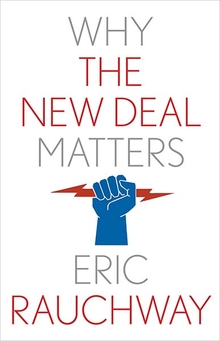In the Shadow of War
WARNING
You are viewing an older version of the Yalebooks website. Please visit out new website with more updated information and a better user experience: https://www.yalebooks.com
The United States since the 1930s
Michael S. Sherry
According to Sherry, America's militarization began partly in response to threatening forces and changes abroad, but its internal sources and consequences in the long run proved more telling. War--as threat, necessity, or model of unified action--persistently justified the state's growing size, power, and activism. But as national government waged "war on poverty," war on AIDS," and "war on drugs," it fostered expectations of "victory" that it could not fulfill, aggravating the very distrust of federal authority that leaders sought to overcome and encouraging Americans to conceive of war as something they waged against each other rather than against enemies abroad. The paradigm of war thereby corroded Americans' faith in national government and embittered their conflicts over class, race, gender, religion, and the nation's very meaning. Sherry concludes by speculating on the possibility of ending America's long attachment to war.
"In this seminal work Michael Sherry adds up the cost of victory in WWII and the Cold War. Solid research and careful thinking mark every page. Highly recommended."—Stephen E. Ambrose, author of Eisenhower: Soldier and President and Nixon: Triumph of a Politician
"An impressive and very important new book."—Garry Wills, New York Review of Books
"A brilliant analysis of U.S. social, cultural, political, economic, and diplomatic history from the 1930s to the present through the lens of the history of militarization. It is a major work, splendidly nuanced and finely textured."—Marilyn B. Young, New York University
"A brilliant new book. . ."—Garry Wills, New York Post
"Mr. Sherry has produced an intelligent narrative and has given significant attention to the structure and behavior of military institutions—which is relatively unusual in historical syntheses. He is highly sensitive to how ideas of war have shaped ideas about sex and sexuality; his discussion of the interplay between militarization and homosexuality, for example, is one of the most interesting and original parts of his book."—Alan Brinkley, New York Times Book Review
"In this indispensable work of analysis and reflection, Sherry reworks the national narrative, arguing powerfully for the primacy of militarization. . . . For those presuming to enter the American labyrinth there is no more important guide than In the Shadow of War. It is a remarkable achievement."—Robert Andersen, Chicago Tribune
"An important book that synthesizes six decades' worth of social, cultural and political history. It sheds new light on the depth and complexity of America's attachment to war. And it makes particularly compelling reading today."—Marybeth Hamilton, New Statesman & Society
"Michael S. Sherry, in his remarkable tour de force . . . argues that militarisation became embedded in America's popular and political culture in the 1940's and, in the context of the cold war, could not be unravelled. At times sparkling, sometimes frustratingly provocative, always stimulating."—Richard Overy, The Sunday Times
"This is a well-written book that both specialists and laypersons can enjoy and appreciate."—Jay Freeman, Booklist
"Sherry's research is prodigious; its presentation is dense and tightly argued. . . . This is an immensely rewarding work. Sherry has synthesized many narrowly focused issues into a meaningful whole. Anyone who wants to come to terms with the complexity and meaning of American history in the twentieth century must confront this book. An impressive achievement indeed."—Stanley I. Kutler, The Times Higher Education Supplement
"With a sharp eye for paradox and irony, Michael Sherry has given us an absolutely fresh perspective on our last half-century in a volume notable for its intellectual reach, subtle analysis, and graceful exposition."--Michael Parrish, Reviews in American History
"Sherry's book can be read as an opinionated survey of American history since the 1930's, or as an extended essay on the nature and meaning of twentieth century American life. Either way it works marvelously."—H.W. Brands, Political Science Quarterly
"[A] compelling history of U.S. militarization since the Great Depression. . . . Sherry offers balanced judgments and nuanced interpretations of the mounds of evidence he has compiled. . . . [A] remarkable book."—R. Scott Appleby, Commonweal
"This book is a thoughtful, provocative, and worthy survey of American history, and merits our close attention."—H-Net Book Reviews
"Sherry has written a spellbinding interpretation of recent America. Every page offers fresh insights, helped by an enviable control over information."—Robert Garson, Annals of the American Academy of Political and Social Science
"Michael S. Sherry's ambitious and perceptive new book describes the 'militarization' of the United States, from the New Deal to the Clinton administration. . . . In the Shadow of War bristles with insights."—Andrew J. Rotter, Journal of American History
"A comprehensive, illuminating, and provocative interpretation of a difficult subject: America's multifaceted militarization since the 1930s. It merits a serious reading, and rereading."—Walter C. Uhler, Bulletin of the Atomic Scientists
"Sherry is a critic of the militarized culture in which he has lived his life, and his book adroitly synthesizes much of the scholarship that has constructed the antimilitarist tradition. . . . Sophisticated and well researched. As in his previous books, he displays an eye for fine detail and an engaging style. Encompassing an amazing sweep of social, economic, and cultural, as well as military trends, Sherry presents a comprehensive survey of the period that is both provocative and readable."—Emily S. Rosenberg, American Historical Review
Publication Date: September 23, 1997
17 b/w illus.









